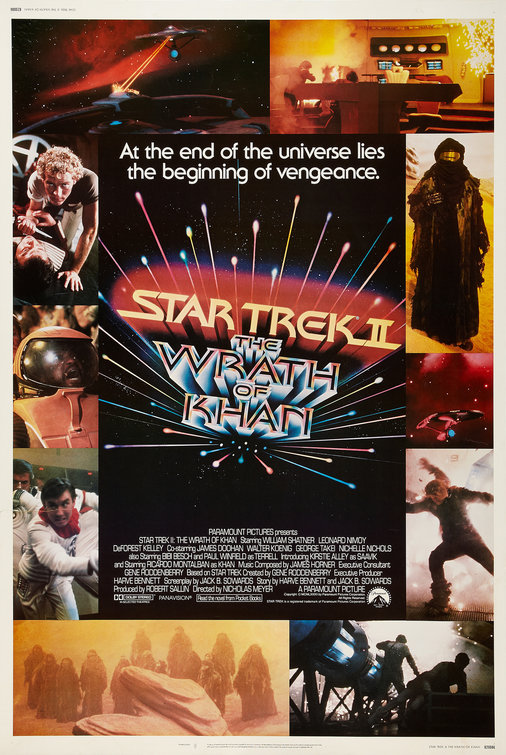
"I have been...and always shall be...your friend...Live long...and prosper."
1982's "Star Trek II: The Wrath of Khan" was the first film I saw that dealt explicitly with human mortality. It taught me about courage, self-sacrifice, friendship, and honor.
The screenplay, credited to "Time After Time" director Nicholas Meyer and Jack B. Sowards (most of which was re-written by the former) tells the story of a Captain James T. Kirk, who, having been promoted, feels worn out, useless, dead inside, acutely aware of his mortality.
Ironically, it is through a confrontation with his past (an old enemy, a former lover, a son he never met) and the death of his best friend that he feels a new appreciation for his life and his destiny, being a starship captain.
At the end of the film, Kirk reflects on Spock's death, and stares out at that Genesis planet, and says, quoting the Dickens novel that his friend gave him for his birthday, " It's a far, far better thing I do than I have ever done before. A far better resting place that I go to than I have ever known."
"Is that a poem?" asks Dr. Carol Marcus, the mother of Kirk's son.
To which Kirk replies, "No. Something Spock was trying to tell me. On my birthday."
And the rest, as they say, is history.